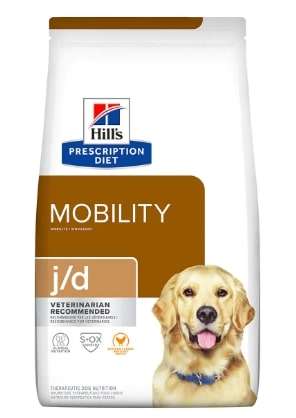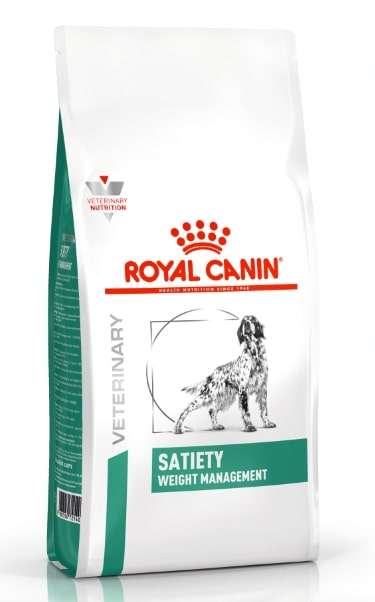Dog Food For Diabetic Dogs
Is your furry friend diagnosed with diabetes?
Discover the best dog food options tailored to meet their unique nutritional needs.
Learn how to keep your canine companion healthy and happy with our comprehensive guide.
Introduction - Dog Food For Diabetic Dogs
In this guide, we’ll embark on a journey to understand the ins and outs of managing diabetes in dogs through the right kind of food.
Let’s ensure your dog’s bowl is filled with both love and nutrition.
A. Understanding Canine Diabetes
Unlocking the Mystery of Doggy Diabetes
- Similarities to human diabetes
- Struggles in regulating blood sugar levels
- Importance of proper management for a happy, healthy pup
B. Importance of Diet in Diabetes Management
The Power of a Tail-Wagging Diet
- Role of diet in stabilizing blood sugar levels
- Preventing complications through a balanced diet
- Setting the stage for a vibrant and active life for your furry friend
Top 10 Foods for a Diabetic Dogs
Embracing a diabetic diagnosis for your furry friend may seem challenging, but fear not – the right food can be your dog’s best ally.
Let’s explore the 10 best foods that not only manage diabetes but also keep your pup’s tail wagging with delight!
Lean Proteins: Building Blocks for Health
Lean proteins like chicken, turkey, and fish are the cornerstone of a diabetic dog’s diet.
These sources are not only delicious but also provide essential amino acids crucial for maintaining muscle mass.
What sets them apart is their ability to offer a protein boost without causing rapid spikes in blood sugar levels.
This makes them an excellent choice for diabetic dogs, ensuring a steady and sustainable source of energy while supporting overall health.
- Opt for lean protein sources like chicken, turkey, and fish.
- Supports muscle health without causing blood sugar spikes.
Leafy Greens: A Green Ticket to Nutrient Boost
Vegetables such as spinach, kale, and broccoli are a green ticket to a nutrient-packed meal for your diabetic dog.
These leafy greens are rich in vitamins, minerals, and antioxidants, promoting overall well-being.
The low-calorie content makes them an ideal addition to your dog’s diet, providing essential nutrients without compromising their blood sugar levels.
Plus, the crunchy texture adds a delightful element to meals, making them both healthy and enjoyable.
- Incorporate vegetables like spinach, kale, and broccoli.
- Packed with essential vitamins and minerals for overall well-being.
Sweet Potatoes: A Diabetic's Delight
Sweet potatoes emerge as a delightful addition to a diabetic dog’s menu.
With a low glycemic index, these tubers help regulate blood sugar levels, preventing sudden spikes.
Packed with fiber, vitamins, and minerals, sweet potatoes contribute not only to stable blood sugar but also to digestive health.
The natural sweetness adds a palatable touch to your dog’s bowl, making mealtime a joyous experience for your diabetic companion.
- Low-glycemic index helps regulate blood sugar levels.
- Rich in fiber and nutrients, promoting digestive health.
Whole Grains: Slow Release, Steady Energy
Whole grains such as brown rice and quinoa play a crucial role in providing slow-releasing, steady energy for diabetic dogs.
These complex carbohydrates are digested more slowly, preventing abrupt fluctuations in blood sugar levels.
Rich in fiber, whole grains also support digestive health and help your furry friend maintain a healthy weight.
The inclusion of these grains ensures a balanced diet that keeps your dog energized and satisfied throughout the day.
- Choose whole grains like brown rice and quinoa.
- Provides a sustained energy source without causing sudden spikes.
Blueberries: Tiny Treats Packed with Power
Despite their small size, blueberries are powerful treats for diabetic dogs.
Low in sugar and high in antioxidants, these berries contribute to immune system support and overall health.
The natural sweetness adds a flavorful punch to your dog’s diet, making them an enjoyable and nutritious snack.
Whether served as a treat or mixed into meals, blueberries bring a burst of goodness to your diabetic dog’s palate.
- Low in sugar, high in antioxidants.
- Supports immune function and overall health.
Carrots: Crunchy and Beneficial Bites
Carrots emerge as crunchy and beneficial bites for diabetic dogs.
Low in calories and high in fiber, these orange delights make for a satisfying snack that supports your dog’s overall health.
The chewing action involved in eating carrots also promotes dental health, making them a dual-purpose delight for your furry friend.
So, go ahead and let your dog enjoy the satisfying crunch of carrots while reaping the nutritional benefits.
- Low-calorie, high-fiber snack for diabetic dogs..Aids in dental health and satisfies the chewing instinct.
Pumpkin: The Fiber-Friendly Superfood
Pumpkin, the fiber-friendly superfood, earns its spot as an excellent addition to the diet of diabetic dogs.
Rich in soluble fiber, pumpkin aids in digestion and helps regulate blood sugar levels.
This orange powerhouse is also known for its weight management benefits, making it an ideal choice for diabetic dogs needing to maintain a healthy weight.
Whether served as a treat or mixed into meals, pumpkin brings a fiber boost that your dog’s digestive system will thank you for.
- Rich in soluble fiber, aiding in digestion.
- Helps regulate blood sugar levels and maintain a healthy weight.
Salmon: Omega-3 Goodness for Joint Health
Salmon stands out as a source of omega-3 goodness, benefiting not only your dog’s overall health but also supporting joint health.
Omega-3 fatty acids found in salmon have anti-inflammatory properties, making them essential for dogs, especially those with diabetes.
Adding salmon to your dog’s diet not only provides a flavorful twist but also contributes to a shiny coat, healthy skin, and enhanced joint mobility.
- Omega-3 fatty acids support joint health.
- Adds a flavorful twist to your dog’s diet.
Cottage Cheese: A Protein-Packed Twist
Cottage cheese, a protein-packed twist, offers a low-carbohydrate, high-protein option for diabetic dogs.
This dairy delight provides essential amino acids necessary for muscle health without burdening your dog with excessive carbohydrates.
The easily digestible nature of cottage cheese makes it a suitable choice for dogs with diabetes, ensuring they receive the protein they need without compromising their overall health.
- Low in carbohydrates, high in protein.
- Ideal for diabetic dogs needing a protein boost.
Green Beans: Crisp, Crunchy, and Low-Carb
Green beans emerge as crisp, crunchy, and low-carb delights for diabetic dogs.
With their low-calorie and low-carbohydrate content, green beans make an excellent addition to your dog’s diet, promoting a healthy weight.
The satisfying crunch satisfies your dog’s natural urge to chew, contributing to dental health.
Whether served fresh or lightly steamed, green beans offer a tasty and nutritious treat that your diabetic dog will love.
- Low in calories and carbohydrates..Adds a satisfying crunch to meals without spiking blood sugar.
Summary
Navigating the dietary landscape for your diabetic dog can be an adventure of flavors and health benefits.
By incorporating these top 10 foods into your pup’s diet, you’re not just managing diabetes – you’re providing a feast of love that keeps their tail wagging and their health thrive.
Remember, every bite counts in the journey to a happier and healthier life for your furry friend!
Key Considerations for Diabetic Dog Food
Dive into the world of diabetic dog food with us! We’ll explore the key considerations to keep your pup healthy and happy.
Let’s make choosing the right food a breeze for your furry friend’s well-being.
A. High-Quality Protein
High-quality proteins, such as those found in chicken, turkey, and fish, are essential for diabetic dogs.
These proteins serve as the building blocks for muscle health and overall well-being.
Opting for lean sources ensures that your dog receives the necessary amino acids without causing abrupt spikes in blood sugar levels.
A protein-rich diet supports your diabetic dog’s energy needs and helps maintain a healthy body condition, making it a crucial component in managing diabetes effectively.
B. Complex Carbohydrates
Choosing complex carbohydrates like sweet potatoes, brown rice, and whole grains is a key consideration in diabetic dog food.
These carbohydrates are digested more slowly, providing a gradual release of energy and preventing sudden spikes in blood sugar.
Complex carbohydrates also contribute to the overall fiber content of the diet, supporting digestive health.
Including these slow-release sources in your dog’s meals helps maintain stable blood sugar levels and ensures a sustained source of energy throughout the day.
C. Fiber Content
Fiber plays a crucial role in the diet of diabetic dogs, contributing to both digestive health and blood sugar regulation.
Diets rich in fiber, derived from sources like vegetables and fruits, help slow down the absorption of glucose, preventing rapid spikes.
This promotes a more stable blood sugar profile and aids in weight management.
Additionally, adequate fiber content supports gastrointestinal function, preventing constipation and promoting a healthy digestive system for your diabetic canine companion.
D. Limited Fat
Limiting fat intake is another important consideration in crafting a diet for diabetic dogs.
While some fat is necessary for overall health, excessive amounts can contribute to weight gain and insulin resistance.
Opt for dog foods with moderate fat content, derived from sources like fish or vegetable oils.
This ensures your diabetic dog receives the essential fatty acids needed for a healthy coat and skin without compromising their weight management and insulin sensitivity.
E. Avoiding High-Glycemic Ingredients
High-glycemic ingredients, such as those containing corn syrup or refined grains, should be avoided in diabetic dog food.
These ingredients can lead to rapid spikes in blood sugar levels, making it challenging to maintain stable glucose levels.
Instead, opt for dog foods with low-glycemic ingredients like sweet potatoes and whole grains.
This helps regulate blood sugar, preventing the peaks and valleys that can negatively impact a diabetic dog’s health.
F. Consulting Your Veterinarian
Before making significant changes to your diabetic dog’s diet, always consult your veterinarian.
Veterinary professionals possess the expertise to tailor dietary recommendations based on your dog’s specific needs, considering factors like age, weight, and overall health.
Your veterinarian can guide you in selecting the most appropriate dog food and help monitor your dog’s response to dietary changes, ensuring that the chosen diet effectively supports their diabetes management while meeting nutritional requirements.
Selecting the Right Dog Food Brands
Picking the right food for your pup matters, especially with health concerns like diabetes.
A. Hill's Prescription Diet
Crafted for Canine Wellness
Hill’s Prescription Diet understands the unique dietary needs of diabetic dogs, formulating dog food that prioritizes health and palatability.
Trusted Veterinary Expertise
Developed with the input of veterinary nutritionists, Hill’s diets offer precise nutritional balance, providing a reliable choice for managing diabetes.
Balanced Blend for Blood Sugar
The dog food features a careful mix of high-quality proteins, complex carbohydrates, and essential nutrients for better blood sugar control.

Hill’s Prescription Diet stands out as a trusted choice for dog owners navigating the dietary needs of diabetic dogs.
Developed with the expertise of veterinary nutritionists, Hill’s offers specialized formulations designed to manage diabetes and promote overall health.
Their diabetic dog food typically features a balanced blend of high-quality proteins, complex carbohydrates, and essential nutrients.
The precision in crafting these diets allows for better blood sugar control, making it a reliable option for pet parents looking to provide optimal care for their diabetic dogs.
Hill’s Prescription Diet emphasizes both efficacy and palatability, ensuring that dogs not only receive the necessary nutrition but also enjoy their meals, enhancing the overall dining experience for these furry companions.
B. Royal Canin Veterinary Diet
Tailored Nutrition for Diabetic Dogs:
Royal Canin Veterinary Diet is a go-to choice for dog owners seeking specialized nutrition. Their diabetic dog food is crafted to address unique needs with precision.
Scientifically Formulated
Backed by scientific research and collaboration with veterinarians, Royal Canin diets aim to support blood sugar regulation and weight management effectively.
Proteins, Carbs, and Fiber Harmony
Featuring precise levels of proteins, carbohydrates, and fiber, Royal Canin Veterinary Diet provides a holistic approach to canine health, promoting overall well-being.

Royal Canin Veterinary Diet has long been recognized for its commitment to providing tailored nutrition for dogs with specific health conditions, including diabetes.
Their veterinary diets are meticulously formulated to address the unique needs of diabetic dogs, focusing on ingredients that contribute to blood sugar regulation and weight management.
Royal Canin’s diabetic dog food often includes precise levels of proteins, fibers, and carbohydrates to support overall health.
The company’s dedication to scientific research and collaboration with veterinarians ensures that their diets meet the stringent standards required for managing diabetes effectively.
With a reputation for quality and a holistic approach to canine health, Royal Canin Veterinary Diet remains a reliable choice for dog owners seeking premium nutrition for their diabetic pets.
C. Purina Pro Plan Veterinary Diets
Nutritional Solutions for Diabetic Dogs
Purina Pro Plan Veterinary Diets stands out as a reliable brand offering solutions for dogs with diabetes, prioritizing nutritional excellence.
Expert-Backed Formulations
Crafted with expertise from Purina’s veterinarians and nutritionists, these diets are researched and designed to provide essential nutrients while managing blood sugar.
Balanced Profiles for Diabetic Care
Purina Pro Plan Veterinary Diets often include high-quality proteins, complex carbohydrates, and fiber, creating a well-rounded nutritional profile to support diabetic dogs.

Purina Pro Plan Veterinary Diets is another reputable brand that offers specialized formulations catering to the dietary needs of diabetic dogs.
Backed by extensive research and the expertise of Purina’s team of veterinarians and nutritionists, these diets are crafted to support blood sugar management and provide essential nutrients.
Purina Pro Plan Veterinary Diets often incorporate high-quality proteins, complex carbohydrates, and fiber to create a well-rounded and effective nutritional profile for diabetic dogs.
The brand’s commitment to advancing pet nutrition ensures that their diabetic dog food options align with the latest scientific findings, offering a reliable choice for pet owners seeking a trustworthy and nutritionally sound solution for their furry companions with diabetes.
Bottom Line
In caring for our beloved canine companions diagnosed with diabetes, choosing the right dog food is paramount for their well-being.
Understanding the fundamentals of canine diabetes and its dietary implications is the first step.
High-quality proteins like chicken and turkey, complex carbohydrates such as sweet potatoes, and a focus on fiber content are key elements in crafting a balanced and effective diet.
Moderating fat intake, avoiding high-glycemic ingredients, and consulting with a veterinarian for personalized advice are crucial considerations.
Trusted dog food brands designed for diabetic dogs, like Hill’s Prescription Diet and Royal Canin Veterinary Diet, can provide convenient and well-formulated options.
By embracing these insights, dog owners can embark on a journey to not only manage diabetes in their furry friends but to foster a happy, healthy, and tail-wagging life.
Always remember, the right diet is a powerful tool in ensuring the best possible quality of life for our diabetic dogs.
FAQ
What is diabetes in dogs, and how does it impact their diet?
Diabetes in dogs is a condition where the body struggles to regulate blood sugar levels.
Proper diet management is crucial to prevent complications.
Diabetic dogs benefit from a diet rich in high-quality proteins, complex carbohydrates, and fiber to maintain stable blood sugar levels.
Why is high-quality protein important for diabetic dogs?
High-quality proteins like chicken and fish provide essential amino acids for muscle health without causing rapid spikes in blood sugar.
This helps in managing diabetes effectively while supporting overall well-being.
What role do complex carbohydrates play in a diabetic dog's diet?
Complex carbohydrates, found in sweet potatoes and whole grains, are digested slowly, preventing sudden spikes in blood sugar.
They offer a steady energy source, crucial for diabetic dogs to maintain a balanced and regulated blood sugar profile.
How does fiber contribute to the well-being of diabetic dogs?
Adequate fiber, sourced from vegetables and fruits, aids in blood sugar regulation and promotes digestive health.
It plays a crucial role in managing diabetes and preventing complications associated with the condition.
Why is it important to limit fat in the diet of diabetic dogs?
While some fat is essential, excessive fat intake can contribute to weight gain and insulin resistance.
Choosing dog foods with moderate fat content, such as those with fish or vegetable oils, supports overall health without compromising weight management.
What are high-glycemic ingredients, and why should they be avoided?
High-glycemic ingredients like corn syrup and refined grains cause rapid spikes in blood sugar levels.
Avoiding these ingredients is vital for diabetic dogs to maintain stable blood sugar and prevent complications associated with erratic glucose levels.
Can diabetic dogs enjoy treats, and if so, what are suitable options?
Yes, diabetic dogs can enjoy treats in moderation.
Opt for low-sugar, high-fiber options like blueberries or carrots.
Consult with your vet to ensure treats align with your dog’s dietary needs.
How do dog food brands like Hill's Prescription Diet cater specifically to diabetic dogs?
Hill’s Prescription Diet formulates dog food with input from veterinary nutritionists, tailoring the diet to meet the unique requirements of diabetic dogs.
The focus is on providing balanced nutrition for effective diabetes management.
What sets Royal Canin Veterinary Diet apart for diabetic dogs?
Royal Canin Veterinary Diet stands out for its scientifically formulated diets.
Backed by research and collaboration with veterinarians, their diabetic dog food addresses specific health needs, promoting effective blood sugar regulation and weight management.
How does Purina Pro Plan Veterinary Diets contribute to the well-being of diabetic dogs?
Purina Pro Plan Veterinary Diets offers solutions for dogs with diabetes, providing nutritionally sound options.
Crafted with expertise from veterinarians and nutritionists, their diabetic dog food supports blood sugar management while ensuring essential nutrients for overall health.
